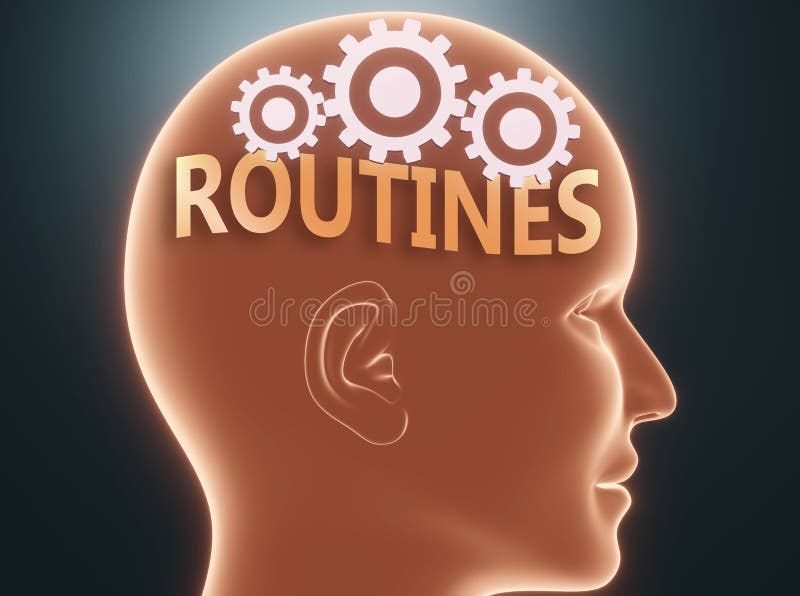Building Resilience Against Mental Blocks
By Mind & Muscle Academy. Newsletter nº13, 4ᵗʰ in the “Overcoming Mental Blocks” Series; 06/12/2024.
Welcome back to the fourth publication of our series on overcoming mental blocks. Last week, we examined how to shift your mindset.
P.S. Read to the end to access the link!
This week, we’re diving into the next step on the journey: Building Resilience.
Introduction:
You’ve broken through the mental blocks.
You’ve identified what triggers them.
You’ve even started to shift your mindset when challenges arise.
But what if you could stop mental blocks from happening in the first place?
Resilience is the secret weapon.
It’s the ability to withstand setbacks, adapt, and emerge stronger. This isn’t about avoiding struggles - that’s unrealistic. Instead, it’s about cultivating habits and mental practices that make you less likely to get stuck and more likely to bounce back if you do.
Take the first step with me toward becoming the best version of yourself!
What’s in This Week’s Article?
Habits and Routines: The Bedrock of Mental Resilience
Emotional Regulation: Navigate Setbacks
Proven Techniques: Mindfulness, Gratitude, and Incremental Challenges
Balance Ambition with Recovery: Avoid Burnout
1. Build Your Fortress: Habits, Routines, and Self-Care
Resilience isn’t built in a single moment of crisis - it’s created in the small, everyday choices we make. Think of habits and routines as the foundation of your mental fortress.
Anchor Your Day: Start and end your day with intention. Morning habits like journaling, stretching, or even five minutes of mindfulness can set the tone.
Prioritise Recovery: Mental blocks thrive on burnout. Sleep, proper nutrition, and time for yourself aren’t luxuries; they’re necessities.
Small Wins Add Up: Success isn’t about grand gestures - it’s about consistency. The more you prove to yourself you can follow through, the stronger your mental framework becomes.
The Science: A study from College Student Journal found that individuals who maintained consistent routines, including exercise and structured sleep patterns, were less likely to experience mental fatigue during stressful periods.1
A routine doesn’t just organise your day; it shields your mind.
P.S. Need more help with starting your routines, or still not convinced of their effectiveness? Check out this article:
2. Learn to Manage Your Emotional Weather
The most resilient minds aren’t free from emotional storms - they’re skilled at navigating them. Emotional regulation isn’t about suppressing feelings, but about acknowledging them without being controlled by them.
Name It to Tame It: When you feel overwhelmed, pause. Identify the emotion you’re experiencing - anxiety, frustration, fear. Simply naming it can reduce its intensity.
Reframe Setbacks: Mental blocks often come from seeing a challenge as impossible. Ask yourself: What’s one thing I can control right now?
Bounce, Don’t Break: Resilient people don’t avoid failure; they bounce back from it. Shift your mindset from “I failed” to “This didn’t work - what’s next?”
3. Build Mental Strength Through Intentional Practice
Resilience, much like physical strength, can be trained over time. The more intentional you are about strengthening your mind, the less likely you are to crumble under pressure.
Mindfulness for Mental Clarity: Daily mindfulness calms your nerves and trains you to stay focused, even in chaos.
Gratitude for Perspective: Writing down three things you’re grateful for, every day, shifts your mindset toward abundance, helping you handle setbacks with optimism.
Micro-Challenges: Stretch yourself daily in small ways. Whether it’s speaking up in a meeting, tackling a harder workout, or saying yes to something new, these moments build mental stamina.
4. Balance Ambition with Recovery: The Key to Longevity
Burnout is the ultimate block-builder. Pushing yourself to your limits without balancing it with intentional recovery is a recipe for frustration. Here’s how to avoid it:
Define Your Priorities: Not everything demands your full energy. Focus on what truly matters and let the rest go. Use the Eisenhower Matrix to help you.
Active Rest: Rest isn’t just collapsing on the couch - it can be yoga, reading, or a walk in nature. It’s about activities that recharge you.
Say No Without Guilt: Boundaries protect your mental energy. Learning to say no is an act of self-respect, not selfishness.
The lesson here? Ambition is powerful, but only if it’s sustainable.
Final Thoughts
Building resilience isn’t about creating an unshakeable mind - it’s about creating one that adapts, learns, and grows stronger with each challenge. By anchoring yourself in routines, mastering emotional regulation, and balancing ambition with recovery, you’re laying the groundwork for a mindset that thrives under pressure.
Mental blocks may never fully disappear, but with resilience, they’ll no longer have the power to stop you.
Stay tuned for more tips, stories, and advice in our upcoming newsletters, and feel free to check out last week’s edition!
As always, I’m open to new ideas or suggestions you may have, so feel free to leave a comment!
Thank you all for joining me today, and I wish you a pleasant rest of your day.
Quote of the Day:
Best regards,
Ruben
Founder, Mind & Muscle Academy
Laura, K., Palmer. "The Relationship between Stress, Fatigue, and Cognitive Functioning.." College Student Journal, 47 (2013).:312-325.














